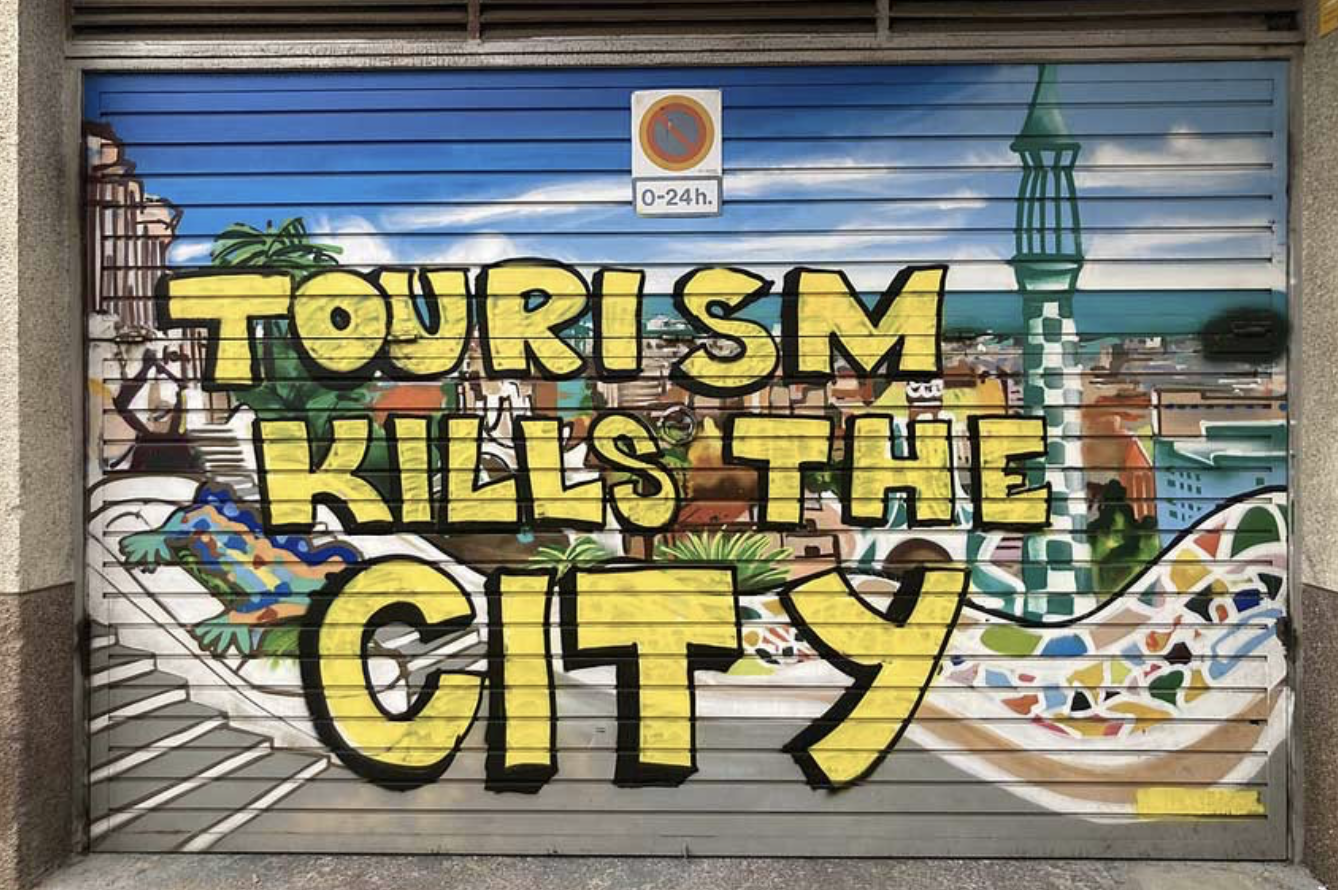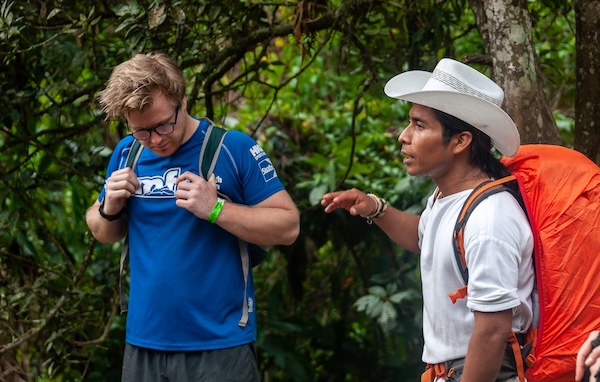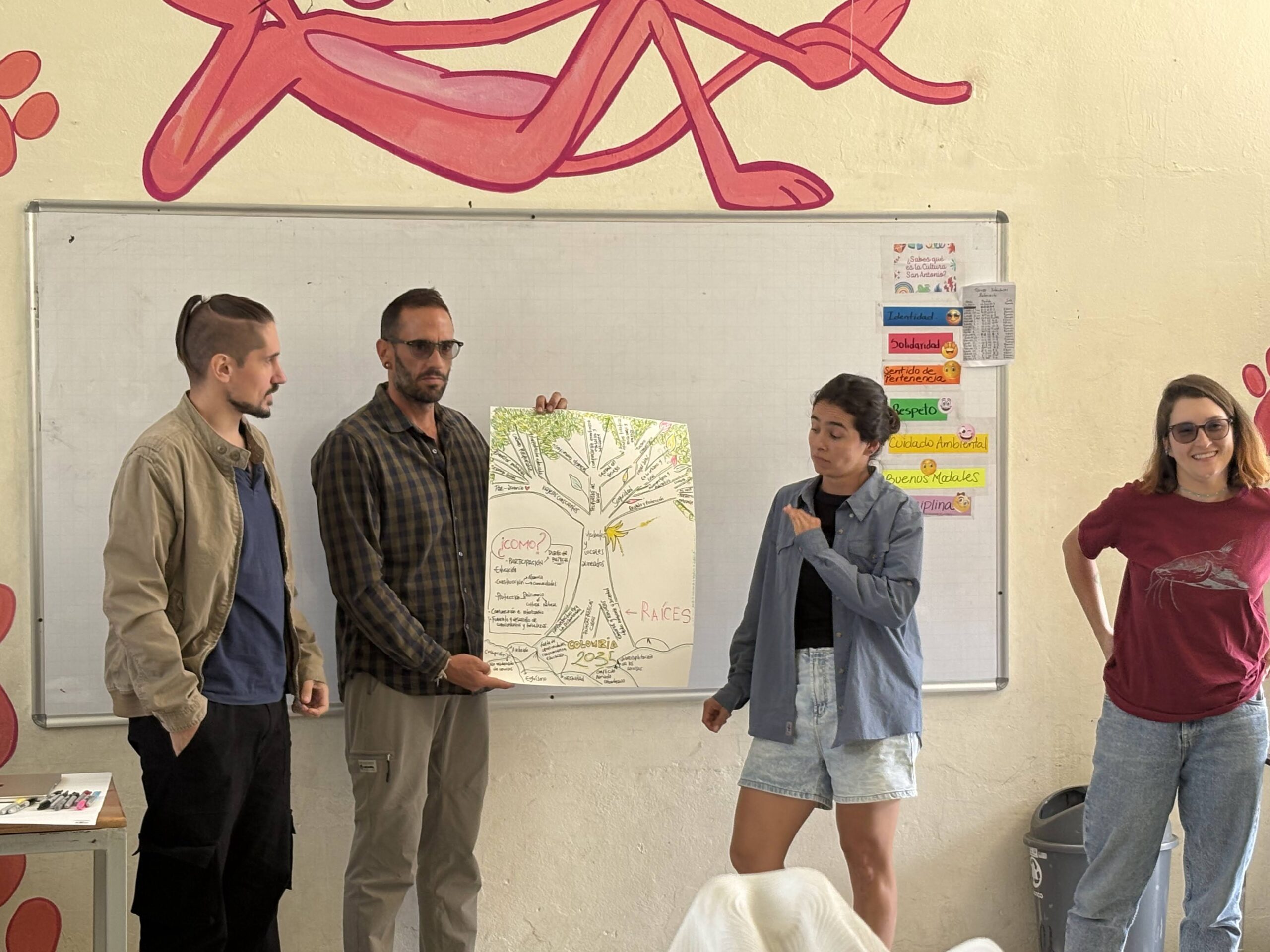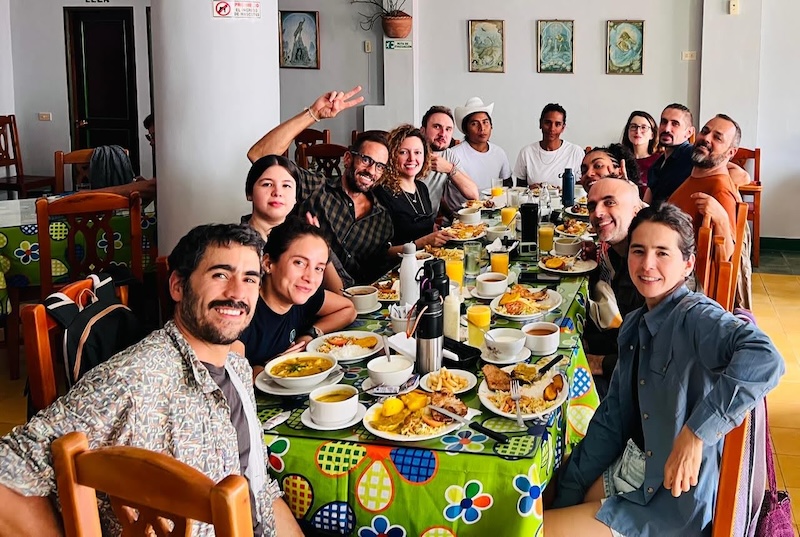Travel insights from Latin America
Solving the Overtourism Crisis: Why Local Voices Matter Most

Author Jay Munro | Posted on 21 July, 2025
Hot on the heels of COVID-19, a new pandemic has been sweeping the globe – and its name is overtourism.
From Barcelona to Venice to Mexico City, locals have revolted against rising rents, gentrification, and the commercial sprawl that comes with unfettered tourism.
In Mexico City alone, rents have skyrocketed by more than 30% since the pandemic, forcing residents out of their own neighbourhoods. This is compounded by unsustainable pressure on natural spaces, the loss of community identity, and a growing sense that cities are being commodified to serve visitors rather than the people who live there.
Colombia may not be making the same international headlines, but it’s grappling with the same symptoms. Like Mexico City, digital nomads are driving up rental prices, making housing increasingly unaffordable for locals.
Landslides are becoming more frequent as rampant construction spreads into vulnerable areas. Cities like Medellin and Cartagena are increasingly defined not by their heritage or landscapes, but by a party scene driven by narco-glorification, drug use, and sex tourism that often exploits minors.
From the outset, Kagumu has aimed to be part of the solution.
Our first hire was a sustainability officer, and all of our tour leaders are local, ensuring that knowledge, income, and decision-making stay rooted in the communities we work with.

All Kagumu guides, including Gabo (right) are local to the regions they visit
When Comuna 13, one of Medellín’s most visited neighbourhoods, became over-exploited, we stopped offering tours there.
However, with ‘touristification’ gathering momentum, we have recognised the need to pause and listen once again.
Illustrating the future of tourism
In May of this year, we organised a three-day sustainability workshop in the charming Andean town of Jardín, inviting all of our tour leaders to help shape a collective vision for the future of tourism in Colombia.
“Kagumu has always had a unique bond with our tour leaders,” says founder Simon Willis. “We’d seen how tourism around the world was causing issues for local communities, and we wanted to hear from the people who live there what they thought tourism should look like in their own community, city, and country.”
As the workshop began, tour leaders were split into groups and asked to design posters that explored how they thought tourism could be improved, what was missing, and what stood in the way. “They used a tree as a metaphor to explain how tourism works in Colombia,” says Kagumu’s Operations Manager, Ana Cristina Vélez.
“The tree represented tourism, and the obstacles to its growth were shown as things like rocks blocking the roots or a chainsaw cutting it down.”
The retreat proved to be an emotional experience for all. “The energy was exactly how we wanted it – strong and passionate,” says Simon. “We wanted to hear their real, honest opinions, and that is what we got.”
The groups dreamed of a country where tourism supports peace, strengthens local economies, and protects both cultural and natural heritage. One of the common threads between all the posters was that there was a serious misalignment between locals and visitors.
“Our tour leaders felt there needs to be a shift in attitude from tourists,” Simon explains. “Too often, people come with a consumer mindset and treat places like products rather than communities. I think travel should be seen as a privilege, not a right.”
Thinking collectively
The groups also recognized that the blame didn’t lie with tourists alone. Many felt that local authorities and institutions should be doing a lot more to protect communities and the environments they depended on, and noted that corruption, gangs, and severe inequality all played their part in the problem.

A team of guides from Colombia presenting their idea of the future of tourism
Comuna 13 is a stark example of how overtourism has begun to blight Colombia. It was here that Ana Cristina, born and raised in the neighbourhood, began her career in tourism just as the barrio was transforming from a no-go area into a community-led destination rooted in education and empowerment. “Back in 2013, Comuna 13 was very unique,” she says. “It was real and authentic.”
Now, she barely recognises it. “To me, the place is very sad. It’s noisy, crowded, and full of garbage and rats. Illegal groups control the street vendors, and many sellers and workers come from other parts of the city, so it’s no longer something local or community-based.”
Like many other residents, Ana Cristina reluctantly decided to move on. “After 35 years living there, I just couldn’t stand the noise anymore.”
Everyone in Jardin recognized that unchecked development could end up destroying what makes Colombia special. One group focused on what fuels growth, proposing actions like zero-waste travel, regular community-led workshops, and more conscious consumer behaviour.

Kagumu team and tour leaders enjoying a typical Antioquia lunch
From brainstorming to actions
Across all the posters, there was a common consensus: the need to reposition Colombian tourism around local people, knowledge, and values.
As the workshop came to an end, Ana Cristina was encouraged by what she experienced in Jardin. “We tended to identify the same problems, but also shared similar dreams, such as a government with stronger policies to support sustainable tourism.”
Kagumu is taking action on the ideas raised in Jardín and we are exploring how they can be woven into future tours, training, and internal decision-making. Watch this space!
Having recently become a member of ACOTUR, the leading organization focused on building sustainable tourism in Colombia, we plan to share updates as these action plans take shape over the coming months.
“There was a strong sense of optimism on how tourism can be better in Colombia and more positively impactful for communities,” says Simon. “Now it’s up to us to deliver on these promises.”
